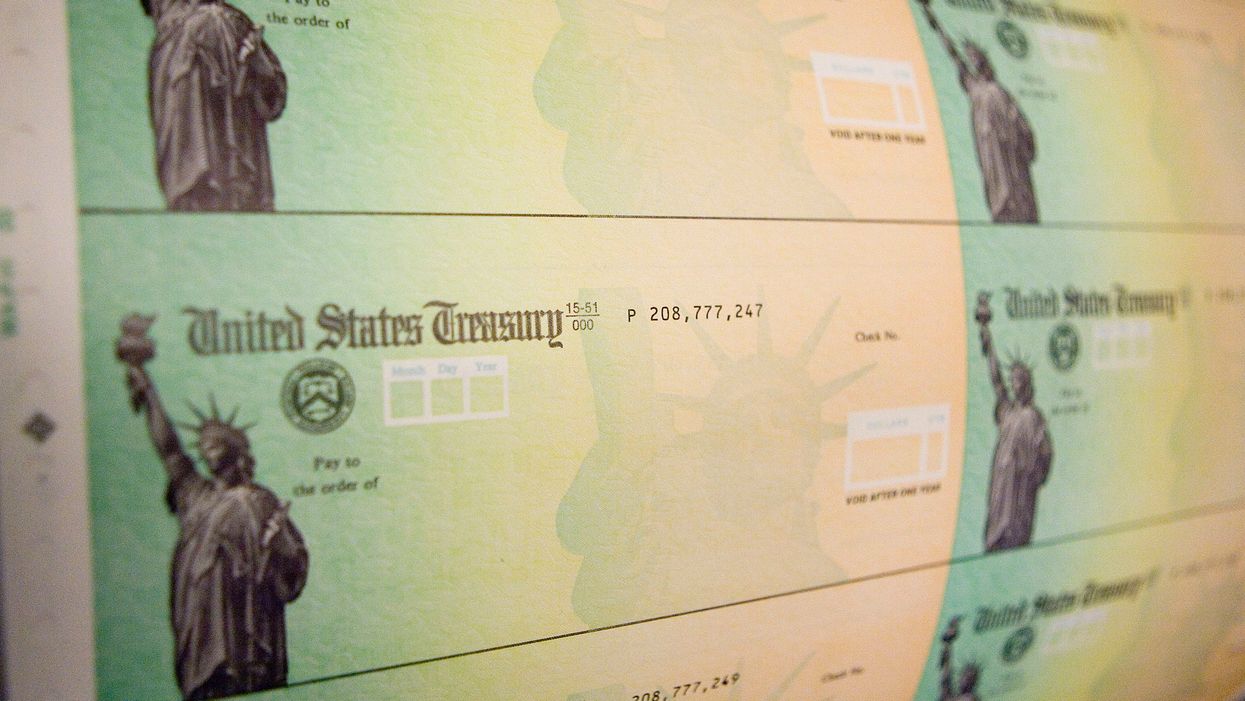
Jeff Fusco/Getty Images

Your stimulus check might be coming sooner than you think
Many Americans are asking, "When will I get my stimulus check?" The answer for some people is: sooner than they may think.
To combat the coronavirus pandemic's harsh effect on the U.S. economy, including the nearly 17 million people who filed for unemployment benefits over the last three weeks, the Trump administration and congressional leaders rolled out a $2 trillion economic recovery package. The Coronavirus Aid, Relief and Economic Security Act, or CARE Act, is delivering much-needed money to Americans suffering financially because of the COVID-19 pandemic.
U.S. residents who have an adjusted gross income of up to $99,000 for individuals, $112,500 for head of household filers, and $150,000 for married couples filing joint returns are eligible, according to the Internal Revenue Service website.
Individual taxpayers who have an AGI between $75,000 and $99,000, head of households making $112,500 and $136,500, and married couples filing jointly with an income between $150,000 and $198,000 are eligible for reduced payments, the IRS states.
Individuals who earn more than $99,000 a year will not be receiving a check. Heads of household who make more than $136,500 and joint filers with an AGI of more than $198,000 are also not eligible.
Students who are age 17 or older don't qualify for a stimulus check if their parents or guardians claim them as a dependent. Parents can only be eligible for a child payment if their son or daughter is 16-years-old and younger.
U.S. residents can receive the maximum stimulus payout of $1,200 payment for individual or head of household filers, and $2,400 for a married couple filing jointly if they are not a dependent of another taxpayer and have a work eligible Social Security number.
U.S. citizens and resident aliens will receive the full one-time stimulus payout of $1,200 for individuals, who are making less than $75,000. Heads of household are eligible for $1,200 if their adjusted gross income is as much as $112,500. Married couples filing joint returns with an AGI of up to $150,000 are eligible for the full $2,400 Economic Impact Payment.
Parents are eligible to receive $500 for each child under the age of 17 that they claim on their taxes.
The Economic Impact Payment decreases by $5 for every $100 if a person's income is above $75,000 and under $99,000. The same goes for a head of household with an adjusted gross income between $112,500 and $136,500, they'll receive a reduced payment. Joint filers who have an AGI between $150,000 and 198,000 are eligible for reduced payments, according to the Consumer Financial Protection Bureau.
The stimulus check is based on your income and the filing status on your 2019 tax return. If you haven't filed your 2019 taxes, your 2018 return will be used to calculate if you're eligible for a economic stimulus payment or not.
No, the checks will not be taxed.
There will be two types of payment: direct deposit and physical paper checks. Americans who filed their income taxes in 2018 or 2019 and provided direct deposit bank information to the IRS will receive the first payments. Stimulus payments could have been deposited in some taxpayers' bank accounts as early as Thursday, April 9, and should be delivered in bank accounts by April 14.
The IRS is expected to mail out paper checks on April 24. Taxpayers with the lowest adjusted income are expected to receive their paper checks first.
"The checks from the Treasury and the IRS probably start going out...I think this week, perhaps early next," Larry Kudlow, Director of the U.S. Economic Council, said on Tuesday.
The IRS is developing a resource for those who did not have their direct deposit listed with the government and would prefer the payment sent to a bank account. The tool is called "Get My Payment," and it is scheduled to be functioning by April 17.
You can find out more information on the IRS website.